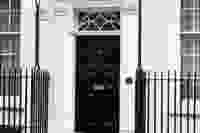
Reeves' Budget of uncertainty puts economic stability at risk
It is unusual for an Autumn Budget to be preceded by such an intense whirlwind of briefing, leaks and speculation. Yet the build-up to Labour’s second Budget on the 26th of November has been long, noisy and increasingly unsettling for working households and responsible savers alike. What should be a moment of clarity, risks becoming another fiscal experiment at the public’s expense.
Take income tax. After weeks of kite-flying, Labour appears to have quietly backed away from the idea of lowering headline rates. This was not the result of sudden economic caution, but a panic flip-flop due to public opinion. A report by think-tank Demos, shows that 80% of the public believe it is unacceptable for the government to break manifesto commitments on tax. U-turn after U-turn does little to bolster economic confidence, particularly at a time when the Office for National Statistics latest figures show that Britain’s GDP grew by just 0.1% in July to September, 0.1% slower than economists expected - the worst performance in nearly two years.
Households, such as those in my constituency of Farnham and Bordon, who have saved and planned, appear to be Labour’s favoured targets. Speculation to halve the ISA cash allowance will undoubtedly punish those who have chosen to put money aside, all while forcing more than £300 billion of cash savings into the stock market. Using the tax system to pressure savers into investment decisions that suit the Treasury rather than the individual is a troubling precedent and a bleak prospect for young savers cautiously cradling their cash.

Pensioners also have reason to be concerned. Labour’s Pensions Commission raises questions over long-standing commitments, while inheritance tax reforms threaten to pull more families into the system. A lifetime cap on gifts or a 40% charge on inherited pension pots would fundamentally change the nature of retirement planning. Adding insult to injury, the Chancellor is reportedly considering a £2,000 cap on salary sacrifice pension contributions. While not technically a tax increase, this could reduce retirement savings by tens of thousands of pounds; Charlene Young, senior pensions and savings expert at AJ Bell, calculates that someone aged 35 earning £50,000 could see their pension shrink by more than £22,000 by age 65, with higher earners losing even more. After last year’s Winter Fuel fiasco, which left many older households struggling, Labour’s proposals offer little protection for pensioners, instead threatening to hit both take-home pay and retirement planning.
Alongside these measures sits the possibility of a council tax overhaul. Revaluations for 2.4 million homes, many of them farmhouses already hit by previous decisions, will see properties in bands F to H dragged back to the cash machine. These revaluations could bring surcharges of up to £10,000 on the highest bands. These families face a Catch-22: they pay some of the highest council taxes yet are also hit by steep stamp duty if they try to move, penalising those who contribute most to our public services. That is why the Conservatives intend to fully scrap stamp duty, ensuring homeowners are not punished but rather encouraged to downsize, improving social mobility and freeing up housing for those who wish to step onto the property ladder.
The Chancellor is also considering a range of targeted taxes that will affect landlords who will likely see their rental income treated like earned income, potentially subject to National Insurance or a separate tax rate, which is predicted to bring in an estimated £2 billion for the Treasury, driven by fierce lobbying from Torsten Bell MP. Bell straddles two briefs across HM Treasury and the Department for Work and Pensions, heavily informed by his days at the Resolution Foundation where he supported tax hikes, revealing the peddling he is likely to champion in Budget meetings.
Beyond property and professional sectors, the Budget may also impose new financial pressures on everyday activities. Electric vehicle (EV) drivers, previously immune to fuel duty, are expected to be facing new charges of 3p per mile starting from 2028. The incentives to own an electric vehicle, particularly for rural communities such as my own where charging infrastructure is already scarce, are rapidly eroding.
In short, this is a Budget of uncertainty, amplified by market apprehension, which drove £1.2 billion in withdrawals from UK-focused equity funds last month. No one can be certain where the next tax burden will fall. What should be a moment to provide clarity and reassurance risks doing the opposite, with a raft of complex and unprecedented proposals that will shake economic stability.

Greg Stafford is the Conservative MP for Farnham and Bordon.













